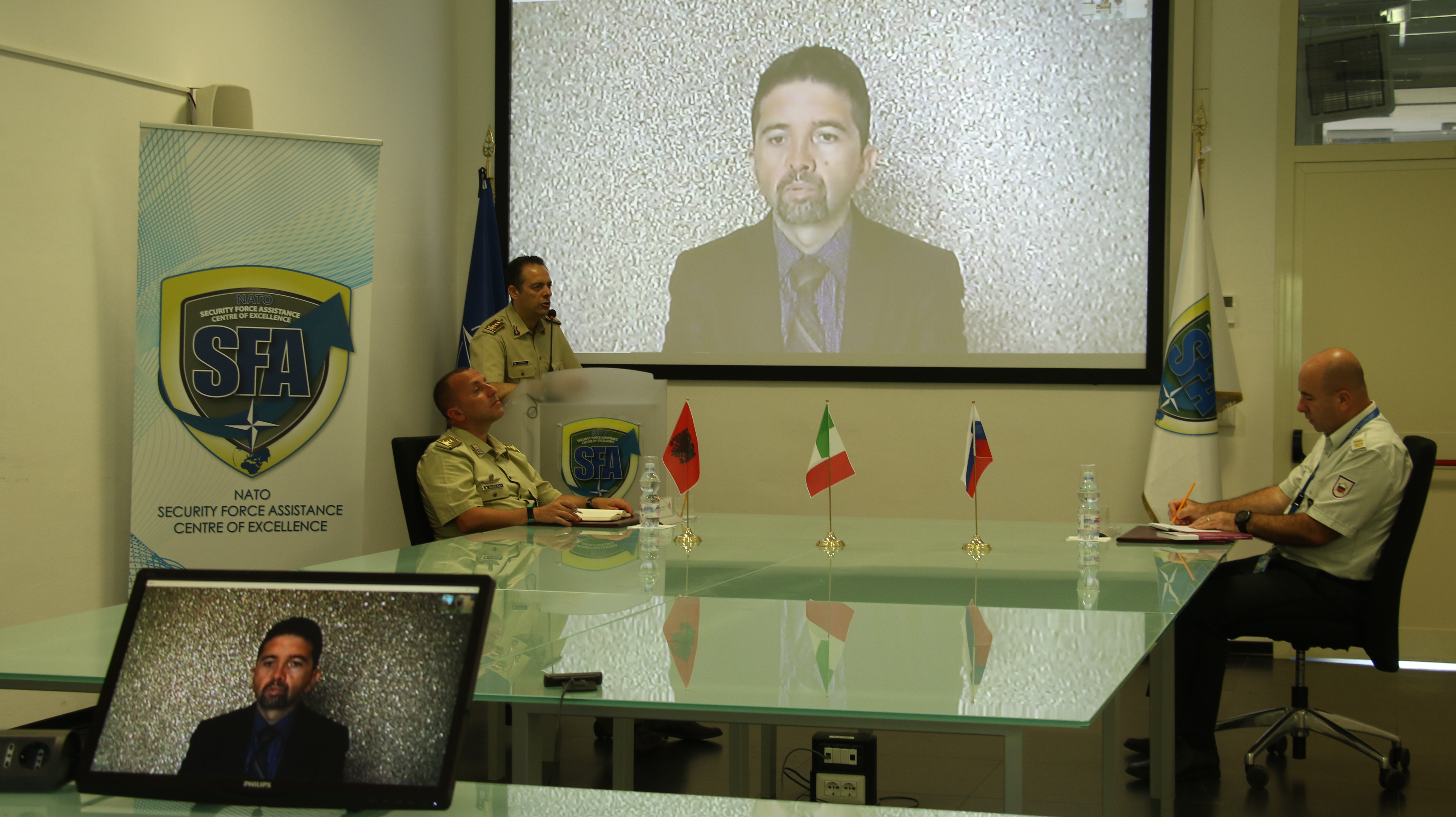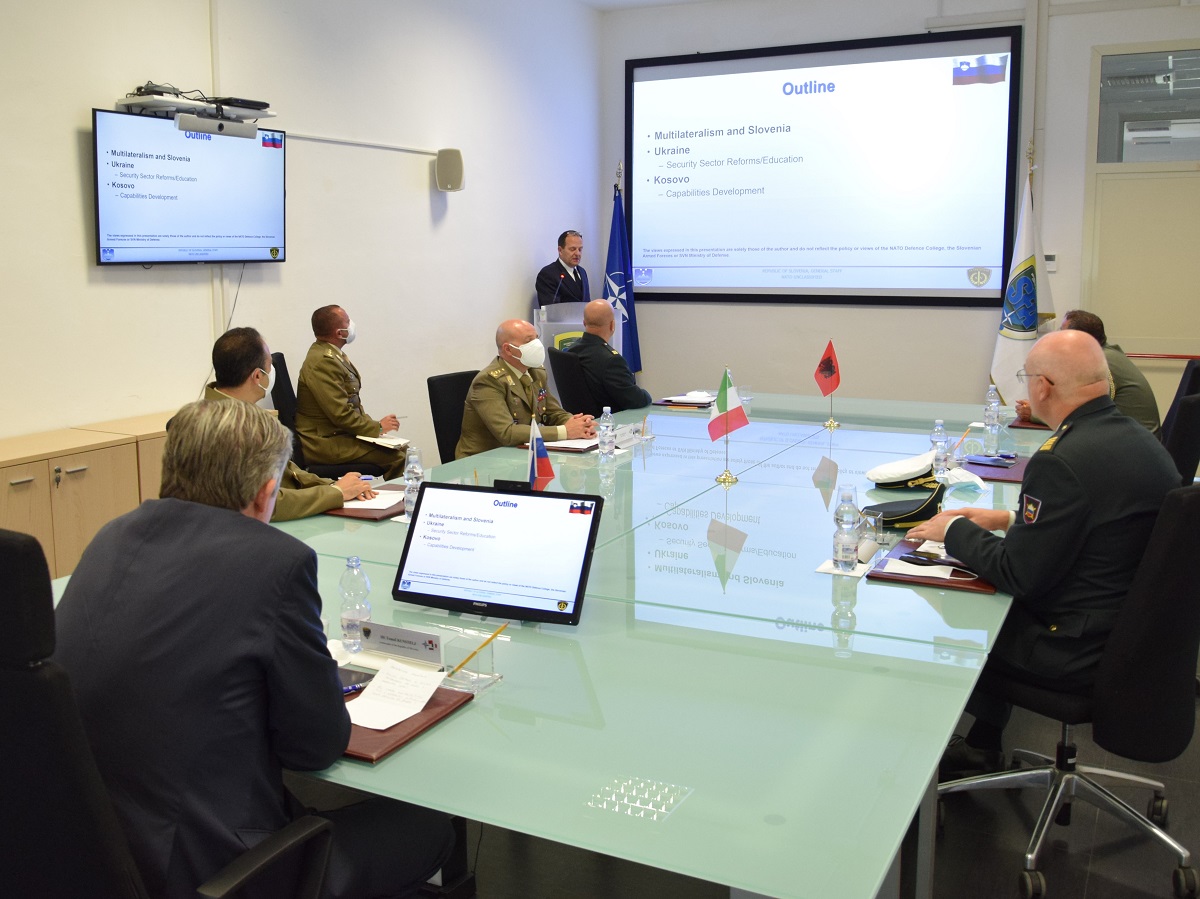The South Flank, NATO’s role in MENA Region and Africa: future challenges and opportunities
Interview with Dr Maurizio GERI
Stabilization Advisor/Strategic Analyst on the South for Three Stones International, NATO Southern Hub and consultant for the Italian Defence General Staff (Defence Innovation Centre, SMD-CID)
What are the unstable situations in the NATO Southern Flank?
After the Arab springs, the various phases of Jihadist terrorism (from Al Qaeda to DAESH) and the civil wars (which later became proxy wars) in Iraq, Libya, Syria and Yemen, the MENA region, including the Sahel, is in a phase of constant instability, exacerbated by demographic and climatic changes and by competition between great powers. The African continent is projected to reach 4.5 billion people by the end of the century, with the largest population growth in human history (counting a fertility rate of 4.5 children, compared to other continents stabilized on an average of 2). At the same time, global warming will produce an ever-increasing desertification and scarcity of resources, primarily water and food, with the threat of natural disasters and new pandemics in Africa. Finally, competition between major powers in the region is in a new phase of “scramble for Africa” with modern means, especially economic, but in some parts (Libya, the Sahel, the Horn of Africa) also military. The future of the South NATO region will therefore be played out on various aspects, which may produce complex challenges, but also opportunities for growth and stabilization, especially if international actors, primarily NATO-EU-UN-AU, provide long-term strategies with efficient and effective cooperation. In this context, Security Force Assistance, with its capacity building activities in support of local institutions, is an indispensable tool for promoting the stability of the MENA countries and Africa.
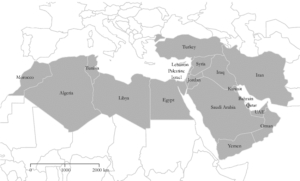
Figure 1. Mena region countries. https://www.researchgate.net/figure/MENA-region-countries_fig1_321263068
What role should NATO play?
The role NATO can play in the MENA Region is crucial to counter instability that may result in severe emergency situations and possible conflict escalation in several countries.
NATO’s role will be of crucial importance, in the coming years, in the MENA area and in Africa in general in combating regional instabilities. The Alliance will have a vital role in managing emergency situations and in preventing possible risks of escalating conflicts (with its two core tasks of crisis management and cooperative security), but it will also be crucial for NATO to work on the root causes of the instabilities and finally to contain the greater presence of other big strategic competitors. From this perspective, NATO has an important tool to manage and shape the multiple dynamics that, on the basis of their interactions, make the Region a hybrid and heterogeneous operational environment. The Projecting Stability concept, the importance of which was underlined by the NATO nations during the Warsaw Summit in 2016, provides NATO with a set of solutions, ranging from military actions to partnership cooperation and diplomacy, to intervene in order to mitigate or extinguish the outbreaks of instability present in the Region.
Such an approach has a twofold utility: on the one hand, promoting the stabilization of the Region and, on the other, furthering the security of the NATO borders. As stated by the Secretary-General of NATO recently: “if our neighbors are more stable, we are more secure, so we must do more for our neighbors and with our neighbors.”
NATO has already worked, respectively, with the North African partners, in the Mediterranean Dialogue since 1994, and with the partners in the “Gulf Cooperation Initiative in Istanbul” since 2004. Furthermore, NATO opened a center dedicated to the South in 2018 in Naples: the NSD-South Hub[3]. However, to achieve a greater role in the Southern Flank in the future, NATO will first have to increase confidence building measures, in order to mitigate the negative perception of the Alliance, by reason of certain European and NATO historical events.
In this regard, the support role of the NATO Centers of Excellence will be very important. In particular NATO SFA COE can play a very valid part in offering advanced education to NATO military and civilian advisors, but also to partner countries in the South region. Furthermore, with the promotion and coordination of efforts among all the main stakeholders operating in support of the assisted nation, SFA COE can improve the NATO image in the region and, therefore, further the building of trust, a requirement for efficient cooperation and stabilization. This approach is consistent with the NATO commitment to involve civil society, to better understand what the problems of the future will be and to determine what the solutions will be, listening to the needs of the populations, in addition to those of the states. Human security will in fact become increasingly important for NATO, alongside traditional national security.
How can SFA activities take concrete action in contrasting the trends/causes at the root of instability and on what levels?
Social level. The demographic explosion will first of all have consequences not only for the instability of African countries (and MENA as a result) but also for mass migration in the coming decades. The demographic dividend at the same time will represent an opportunity for growth and technological innovation on the African continent, due to a more youthful and a more developed society. It will also potentially supply a qualified workforce for the countries with the highest rates of aging (primarily Europe, but also China and Russia).
Nevertheless, the strong urbanization that will accompany the demographic bomb in the African countries will bring greater instability, both social and economic, also due to the difficulties of states in providing transport, housing, work, health, education, justice and everything that a state must guarantee. A modern and efficient internal security sector will therefore be necessary. To ensure the development of such a security sector, it will be important for the international organizations, primarily the African Union (AU) and then EU / UN / NATO, to act synergistically. NATO, and in particular the SFA, will have a crucial role to play. Not only will it be important for the direct training of internal defense and security forces, but also for the indirect consequences of this training. In fact, the specialization of Local Security Forces (LSF) can lead to an increase in schooling, technical skills and also organizational and professional skills, which can benefit all of society. Actually, these skills and abilities will ultimately also be usable in the private sector. The principle of dual use will be encouraged and, in concert, the development of Civil Protection and Civil-Military Cooperation (CIMIC) systems, with the use of new procedures and also new technologies. Although the domain of intervention of the SFA is mainly directed towards defense capacity building and the related dimensions of the Security Sector Reform (SSR), it also involves the civil world through governmental and non-governmental agencies (IOs and NGOs) in the broader scope of capacity building. SSR is a holistic concept that includes all the various disciplines and covers various sectors, including defense, justice, intelligence, governance and also the Disarmament, Demobilization and Reintegration (DDR) of armed groups.
The SFA will therefore be essential to face future social challenges, especially in the Southern Region where security forces are often considered repressive apparatuses in the service of dictatorships. The commitment must be aimed at making them efficient, respectful of the rule of law, and making them work at the service of the population, including in civil emergency operations to deal with natural disasters, mass migrations, pandemics, etc. This is part of the NATO “comprehensive approach” to crisis management and cooperative security, based on the integration of military and civilian tools, including gender mainstreaming in countries where it is not yet developed.
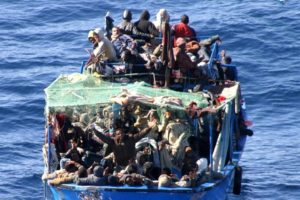
Figure 2. https://www.avvenire.it/attualita/pagine/migranti-malta-unione-europea
Political level. The dictatorships and the various forms of autocracy in the MENA region and in Africa will have to deal with a great demand for democracy and freedom from the new generations (with the surge in youth due to demographic trends) which will call for reforms to promote democracy and economic development. Furthermore, the inefficiency of unprepared political ruling classes will not be able to effectively manage these requests and all future socio-economic challenges, which will also have a huge impact on politics. As mentioned above, it will therefore be necessary to intervene with governmental advisor programs at a ministerial level, not only in the defense sector, but also to support the administrative and political management of the state, for more transparency, the fight against endemic corruption and all other aspects of good governance.
From this perspective, the SFA is an excellent tool for conveying Building Integrity programs through its activities in favor of Local Security Forces. They in turn will act as a sounding board for civilian society.
Economic level. Apart from the economic crisis caused by the virus, the long-term economic development of the MENA / African region will be of crucial interest to the rest of the world. Although there will be a temporary de-globalization due to the crisis, in reality states will not be able to hinder the trend towards economic integration, especially regionally and especially in Africa, with the new Continental Free Trade Area. In this regard, NATO and the EU must overcome the internal differences and contradictions of individual members and adopt a shared strategy that compensates for the increasingly important role of China and Russia on the continent. Resources must be allocated and stabilization projects developed, with long-term objectives considering the development-security nexus, that is, the close link between the economic development and security of Africa, and therefore of Europe. NATO should also collaborate more with the AU, for example by creating new Crisis Management centers (there is already one in Mauritania) or even Centers of Excellence in partner countries of MENA in the future. This will have a multiplier impact, not only on security, but also on local politics and economies. NATO has committed to expanding cooperation with AU as early as 2016 and is gradually increasing its role, but it could do more. Firstly, it should cooperate with the Regional Economic Communities that also deal with security, as it is starting to do with the IGAD (Intergovernmental Authority on Development, of the Horn of Africa) and, secondly, it should start to cooperate with the G5 Sahel, with which it has already begun interacting. The G5 Sahel in fact has economic and security development roles with the G5 Joint Force that the EU is already supporting with training and funds (EUTM Mali supports, for example, its operationalization).
By promoting security training with its implications on Building Integrity in the area of Anti-corruption and transparency on procurement procedures, NATO SFA COE will also contribute to greater stability in the region through the economic sphere.
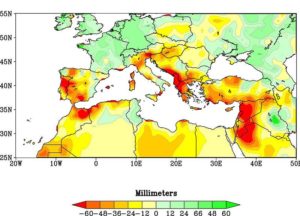
Figure 2. https://upload.wikimedia.org/wikipedia/commons/2/28/ Mediterranean_Drought_Hoerlingetalfig1b.jpg
Security level . At this level, of course, the SFA contribution will be decisive. As part of the SSR activities, the SFA will have to support political stabilization processes in countries that have come out of a conflict, or which are in any case fragile and with “weak states”. This will be done through coordinated actions of the various international actors: primarily the EU, the AU, the UN and, of course, NATO. As mentioned, the impact of SSR work will be crucial for the stabilization of these countries.
In fact, the SSR represents the restoration or transformation of the security institutions of a country that includes all the actors, their roles, responsibilities and actions. The goal is for the country to be managed effectively, legitimately and responsibly, more consistently with the solid principles of good governance and, therefore, to contribute to a well-functioning security framework. A key element of the defense reform is precisely the Security Force Assistance, one of the pillars of the military contribution to SSR with Stability Policing and DDR. All three activities are interconnected, although military forces generally support the DDR process in disarmament and demobilization, and rarely in reintegration, SFA may have a supporting role in reintegrating eligible former combatants to be incorporated into the security forces of the state, through the possibility of “Generate and Organize” SFA activities. Indeed, the SFA activities of “Generate and Organize”, based on transversal legislative and financial aspects, can have a positive effect on the good governance, through the involvement of military and civilian personnel as advisors for the generating function (for example, the use of defense administrative staff to advise on specific issues: procurement, infrastructure, hiring, the pension system, legal assistance, etc.). At the same time, by contributing to the restoration of law and order, Stability Policing strengthens ex-combatants to develop trust in the DDR and implementing organizations. This leads the host nation to take responsibility for DDR processes.
In summary, UN, EU, AU, regional organizations and NATO can play a concurrent and, at the same time, complementary role in DDR processes. For example, NATO could play a predominant role in typically military activities, such as disarmament and demobilization, while, at the same time, it could support the EU and other organizations in reintegrating eligible ex-combatants into local security forces.
Finally, all these operations, as well as the processes of securing or destroying mines and other dangerous weapons (as done by NATO in the past in Egypt and Mauritania), would help not only to increase the level of security, and positively impact the political, economic and social levels, but also to improve NATO’s reputation and endorsement in Africa.
What direct implications has the COVID-19 Crisis had on the Southern region and what should NATO’s role be?
The Coronavirus crisis has demonstrated that aspects of biosecurity, and in general of CBRN security have an impact on the stability of the Southern region. The main cases of contagion in the MENA region and in the enlarged Mediterranean have been in Turkey, Iran, Saudi Arabia and Egypt. In MENA as in European countries, containment measures have had, and will have, long-term consequences, both economically and politically. In MENA, in addition to all the problems of the closure of the productive sectors, the tourism sector, already affected by terrorism, will be almost sunk by the pandemic, and the collapse of the oil price could have disastrous consequences, especially for the Gulf economies. In the political sector, in addition to the tightening and control over political life, lockdown, social distancing and fear in general have greatly restricted the space of expressions of dissent. So, a new Arab Spring as predicted by some parties (after protests in Lebanon and other countries) will be postponed, but perhaps not for long.
NATO can also support these countries in the context of biosecurity with the Joint CBRN Defense Center of Excellence, with task forces and various other related centers. But the fundamental point will again be the cooperation between these centers and the international bodies operating in the South region. NATO SFA COE can make its contribution thanks to its “best practices”, learned from the experience of the Allied countries in SFA activities or in medical capacity building. Furthermore, it can promote education and training by coordinating the specificities of the other COEs and integrating them into the NATO Mobile Education and Training Teams (METT) programs. In addition to supporting training and education, NATO SFA COE can develop interoperability and new concepts from lessons learned developed within NATO.
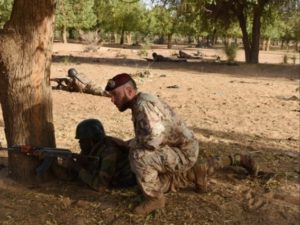
Figure 3. Italia paratrooper performing training activities in favour of Nigerian Army. https://www.difesa.it/OperazioniMilitari/op_intern_corso/ Niger_missione_bilaterale_supporto/notizie_teatro/Pagine/ Missione_in_Niger_la_MISIN_conclude_esercitazione_vipera.asp








